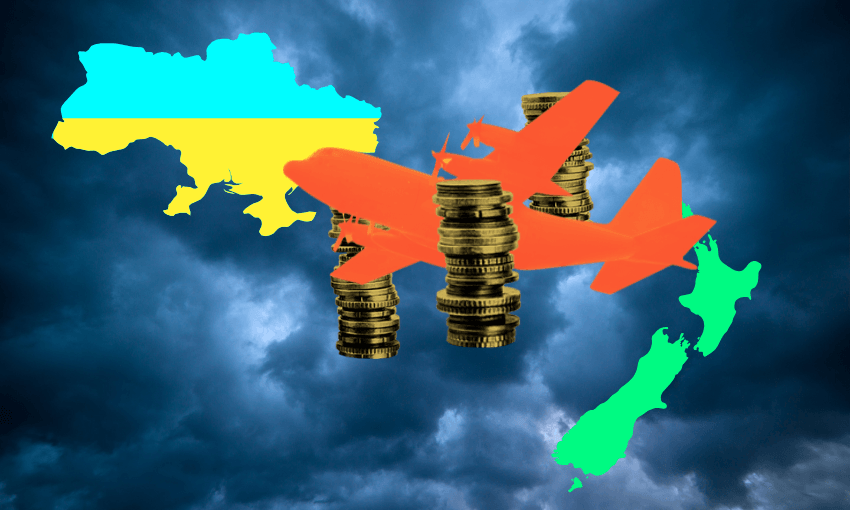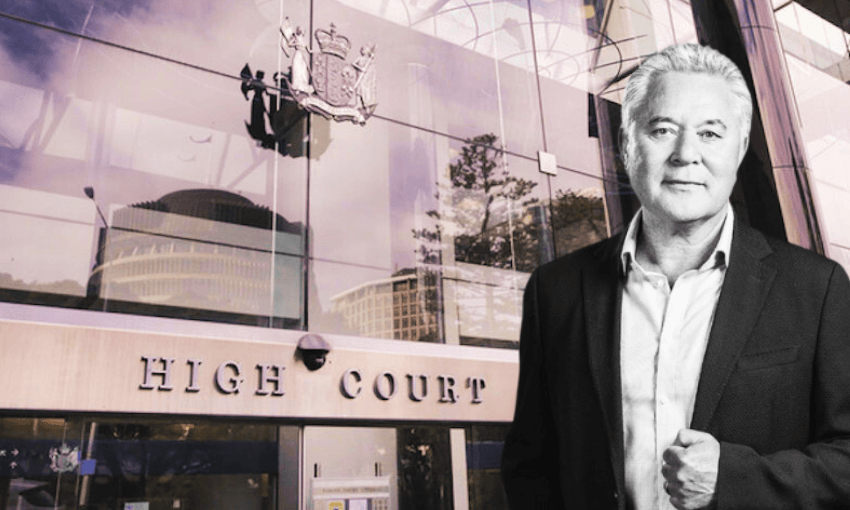Over three years of conflict, New Zealand has repeatedly expressed its support for Ukraine. What has that support actually looked like?
New Zealand has reaffirmed its support for Ukraine following an explosive meeting between US president Donald Trump, US vice president JD Vance and Ukrainian president Volodymyr Zelenskyy at the White House on Friday. “New Zealand remains steadfast in its support for Ukraine as it defends itself in a war that Russia started. It’s mounting the defence of a proud, democratic and sovereign nation, but also the defence of international law,” said Christopher Luxon, in a post on X, that was retweeted by Zelenskyy.
Russia invaded Ukraine in 2022, after years of military build-up following the 2014 conflict sparked by the annexation of Crimea. Since then, thousands of Russian and Ukrainian soldiers have been killed in the war, and an estimated 12,605 civilian deaths and 29,178 civilian injuries have been recorded.
Much of western Europe and the English-speaking world have supported Ukraine, condemning Russia’s actions, including New Zealand. These words have been backed by action; there are a wide variety of sanctions in place against Russian (and Belarussian) individuals and companies, and billions of dollars of aid has been given to Ukraine for humanitarian and military spending – $119bn by the US alone, where the spending has become a major political issue.
What role has New Zealand played in supporting Ukraine since the full-scale Russian invasion? Here are some numbers.
1,318
people on the sanctions list
There are 1,318 people currently on the up-to-date sanctions list, including Putin and other Russian politicians, major Russian military commanders, CEOs of major Russian companies, propagandists and their families. Sanctions for individuals are essentially travel bans: none of these people are allowed to enter Aotearoa, and the sanctions list includes their names and dates of birth. Additional sanctions have also been applied to some individuals from Belarus, which has supported the Russian invasion of Ukraine by allowing Russia to conduct part of the invasion from its territory, and on Iranians supplying drones to Russia and people supplying North Korean military material to Russia. These sanctions are accompanied by sanctions and limits on hundreds of Russian, Belarussian and Iranians entities and institutions.
2,269
visas granted
On March 15, 2022, the Special Ukraine Visa was created for New Zealand citizens or residents born in Ukraine, or Ukrainians living in New Zealand, to sponsor family members to come to New Zealand. The time to express interest in the visa ended on March 15, 2024 after a year-long extension. A resident pathway for these visa holders opened on March 16, 2024, and will remain in place until 2026. As of March 3 2025, 1,948 work visas for Ukrainian adults, 317 study visas for Ukrainian kids and 400 resident visas for Ukrainians who had reached New Zealand under these categories had been approved. However, many of those visa-holders have not been able to arrive in New Zealand; Immigration New Zealand (INZ) records 89 Ukranian student visa holders and 618 work visa holders as having arrived in New Zealand (which may count multiple arrivals, ie an individual arriving, leaving the country and returning again). Others have arrived in New Zealand, but left or moved to other visa categories, acording to Jock Gilray, INZ’s visa director.
3
prime ministers New Zealand has had since the war started
“By choosing to pursue this entirely avoidable path, an unthinkable number of innocent lives could be lost because of Russia’s decision. New Zealand calls on Russia to do what is right and immediately cease military operations in Ukraine and permanently withdraw to avoid a catastrophic and pointless loss of innocent life,” said then prime minister Jacinda Ardern, directly after the invasion.
“Over the past year New Zealand has contributed more than $78 million of financial and military support to Ukraine, as well as our support for Ukraine’s legal case against Russia, sanctions targeting more than 1500 Russian and Belarussian individuals and entities, and trade measures,” said Chris Hipkins, announcing further support for Ukraine in May 2023. “We and likeminded partners will not back off and allow Russia to impose their might on the innocent people of Ukraine.”
While Luxon reaffirmed his support for Ukraine on Saturday, he was also supportive of Ukraine while in opposition. “This war has proved that when you have to fight for what you believe in, you need an army, weapons, ammunition, and friends to help defend your interests. This war has again highlighted the shortcomings of the United Nations, whose purpose is noble, but whose impact is weak. This international group could not prevent one authoritarian power launching a war on its neighbour,” he said, as leader of the opposition when Zelenskyy addressed New Zealand’s parliament in December 2022.
$34.69m
in non-lethal military funding and equipment
In early April 2022, just after the war had started, New Zealand sent a C130 Hercules plane and 50 military personnel to the UK to help train members of the Ukrainian military and transport supplies around Europe (but not into Ukraine), as well as eight logistics specialists, who were based in Germany, for two months. New Zealand also contributed $13.1 million, directed through the UK, for ammunitions procurement, commercial satellite access for Ukrainian intelligence and money for the International Court of Justice, International Criminal Court and Office of the High Commissioner of Human Rights.
Since that first major announcement, New Zealand has given additional money to the Nato Trust Fund for Ukraine, which offers medical rehabilitation, cyber defence, logistics and fuel and military rations to the Ukrainian army, and paid for more weapons procurement for Ukraine.
Along with $31.9m for humanitarian assistance and funding for legal processes and economic support, Winston Peters’ office says that since February 24, 2022, New Zealand has pledged over $133m of financial assistance and in-kind support to Ukraine.
35%
tariff on Russian imports
A tariff of 35% is placed on all Russian imports into New Zealand (meaning the importing business has to pay the government 35% of the cost of the import). Russian oil, gas and coal is also banned from being imported, and the import and export of certain luxury goods and gold to or from Russia has been banned too.
53
jobs (at least)
Red Cross New Zealand has been supporting Ukrainians who have come to New Zealand. As of May last year, a programme run by the NGO has helped 26 Ukrainians find work. Ukrainians who have come to New Zealand since the war started and not registered with the Red Cross won’t be captured by these statistics. The organisation says that as of October 21, 2024, New Zealanders have raised over $5m for humanitarian work in Ukraine.
182
Beehive press releases
The Beehive website has an archive of all press releases sent by New Zealand ministers and prime ministers (but not non-portfolio-holding MPs or party communications). The majority of press releases mentioning Ukraine are from 2022; there were 112 that year, 32 in 2023, 35 in 2024 and just three in 2025 so far. Many of those announcements refer to the war in Ukraine (ie mentioning its effect on fuel prices) without substantively announcing changes to New Zealand government policy.
1 (first)
‘State Occasion’ for Volodymyr Zelenskyy address
In December 2022, Volodymyr Zelenskyy addressed New Zealand’s parliament by video link. He was the first foreign head of government to address New Zealand’s parliament as a “State Occasion”, special rules for convening parliament under unusual and significant circumstances. Zelenskyy’s address was the first time these rules were used. “Various dictators and oppressors always fail to realise that the strength of the free world is not about someone becoming large or big, and becoming full of missiles; it’s in the fact that everyone knows how to unite and act decisively and make its unique contribution to the common cause,” he said, pitching for New Zealand to join a peace summit. The summit eventually took place in June 2024, where New Zealand signed a joint communique pledging to take further steps towards peace.
3
named New Zealanders killed in Ukraine
While New Zealanders are advised not to travel to Ukraine, and the New Zealand Defence Force has no personnel involved in active conflict in the region, some New Zealanders have joined the Ukrainian army. Two named soldiers have been killed: Dominic Abelen, an NZDF soldier on leave who was killed in Ukraine in 2022, with his body not repatriated by Russia. Kane Te Tai, a former NZDF soldier, was killed in March 2023. Christchurch man Andrew Bagshaw, volunteering as an aid worker, was also killed in January 2023. For more context, Tasha Black wrote an in-depth feature in September 2024, interviewing New Zealanders who are choosing to travel to Ukraine. “People say it’s not our war, what are we doing over there? I didn’t come here for you, I came here because it’s the right thing to do,” soldier Jordan O’Brien told her.
This piece was updated at 5:00 pm on March 4 with updated statistics on Ukrainians who have found jobs in New Zealand from the Red Cross.


